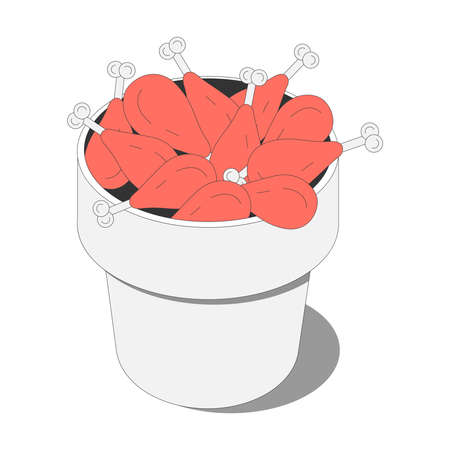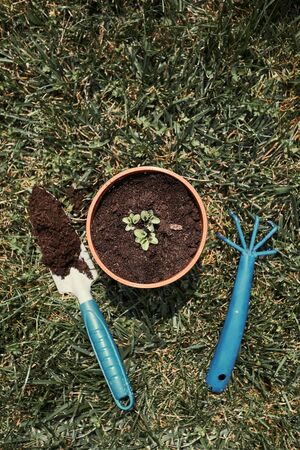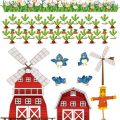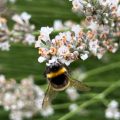Introduction: The Buzz About Bees in Britain
Bees are much more than just a familiar sight in British gardens and countryside; they are a vital part of the nations natural life. Their gentle hum is woven into the fabric of local culture, symbolising community, hard work, and the beauty of nature. From city parks to rolling rural landscapes, bees play an essential role in pollinating flowers, fruits, and vegetables that make up the British diet and scenery. Over centuries, these industrious insects have found a special place in British folklore, gardening traditions, and even public art. As we become more aware of environmental challenges, understanding why bees matter—and how they support both our gardens and wider ecosystems—has never been more important.
2. Native Bee Species in the UK
Britain is home to over 270 species of bees, each playing a special role in the health of our gardens and natural spaces. While many people are most familiar with the honeybee, there are a variety of wild bees that contribute to pollination and biodiversity. These native species have adapted beautifully to the British climate and landscape, making them uniquely important for local ecosystems.
Main Types of Bees Found Across Britain
| Bee Type | Key Characteristics | Typical Habitats | Unique Contribution |
|---|---|---|---|
| Honeybee (Apis mellifera) | Social, lives in hives, well-known for producing honey | Gardens, orchards, farms, managed hives | Major pollinator for crops and garden plants |
| Bumblebee (Bombus spp.) | Large, furry, often striped; social but smaller colonies than honeybees | Meadows, gardens, hedgerows, woodland edges | Effective in cold weather; pollinates early spring flowers and vegetables |
| Solitary Bees (e.g., Red Mason Bee, Leafcutter Bee) | Do not form colonies; nest alone in soil or cavities | Bare ground, hollow stems, garden bee hotels | Superb pollinators for fruit trees and wildflowers; many are specialists for certain plants |
The Importance of Diversity Among British Bees
This rich diversity means that different bee species are active at various times throughout the year and can thrive in different environments. For example, bumblebees can forage during colder months when other insects are inactive, while solitary bees play a vital role in pollinating specific native wildflowers. The presence of these varied bees ensures that British gardens remain vibrant and productive all season long.
Supporting Local Bee Populations
Understanding the unique qualities of each native bee helps gardeners and nature lovers make informed choices about planting and habitat creation. By encouraging a range of flowering plants and providing shelter such as bee hotels or undisturbed patches of land, we can support these essential pollinators and preserve the delicate balance of our local ecosystems.

3. The Vital Role of Bees in British Gardens
Bees are at the heart of every thriving British garden. Their tireless activity helps pollinate a wide variety of popular plants, from fragrant lavender and classic roses to apple trees and runner beans. Without bees, many of the cherished blooms and home-grown vegetables found in traditional British gardens would struggle to flourish. These busy insects transfer pollen from flower to flower, ensuring that fruits set and seeds develop. This natural process is essential for garden favourites like strawberries, courgettes, and broad beans, all staples in British allotments and back gardens.
Beyond just providing beauty and food, bees play a crucial role in supporting time-honoured gardening practices across the UK. Many heritage varieties of plants depend on bee pollination for healthy yields, helping gardeners uphold traditions passed down through generations. By encouraging a diversity of flowering plants, British gardeners not only create picturesque outdoor spaces but also support local bee populations. Planting wildflowers, leaving patches of lawn unmown, and choosing native species are all simple steps that make gardens more welcoming for bees. In turn, bees reward these efforts by keeping gardens vibrant, productive, and resilient—showcasing the timeless partnership between British gardeners and their buzzing allies.
Bees and the British Ecosystem
Bees are vital to the health of Britains ecosystems, playing a key role far beyond our gardens. Their pollination services support not only cultivated crops but also wild plants, which in turn provide food and shelter for countless native species. Without bees, many of Britain’s iconic landscapes and much-loved wildlife would be under threat.
How Bees Support Wildlife
By pollinating wildflowers, bees help maintain natural habitats that birds, butterflies, small mammals, and insects rely on. These wildflowers form the backbone of meadows, woodlands, and hedgerows—staples of the British countryside. The interconnectedness can be seen in the way entire food chains depend on healthy plant populations sustained by bee pollination.
Benefits to Food Crops
British agriculture heavily depends on bees. Many fruits and vegetables grown locally—such as apples, strawberries, and broad beans—rely on bee pollination for good yields and quality produce. This not only supports local farmers but also ensures the availability of fresh, homegrown foods for households across the UK.
Key Contributions of Bees to the British Ecosystem
| Area | Bee Contribution | Impact on Ecosystem |
|---|---|---|
| Wildlife Habitats | Pollinate wildflowers and native plants | Supports diverse animal species and stable food webs |
| Agriculture | Increase crop yields through effective pollination | Sustains local farming and food security |
| Natural Landscapes | Maintain meadows, woodlands, and hedgerows | Preserves scenic beauty and ecological balance of the countryside |
| Biodiversity | Encourage genetic diversity among plants | Makes ecosystems more resilient to change and disease |
The decline in bee populations would have a ripple effect throughout Britain’s natural world. By safeguarding bees, we are actively preserving the unique character of British wildlife, supporting our food systems, and protecting cherished landscapes for future generations.
5. Threats Facing Bees in the UK
Despite their vital role in British gardens and ecosystems, bees are facing a range of serious threats across the UK. One of the most significant challenges is the widespread use of pesticides. These chemicals, particularly neonicotinoids, can harm bees by affecting their nervous systems, making it difficult for them to navigate, forage, and reproduce. Even low levels of exposure can weaken bee colonies over time.
Another major issue is habitat loss. As more land is developed for housing and agriculture, wildflower meadows and hedgerows—the natural homes of many bee species—are disappearing. Without access to diverse sources of nectar and pollen, bees struggle to find enough food throughout the year. This leads to smaller populations and reduces their ability to pollinate both wild plants and garden crops.
Climate change is also altering the landscape for British bees. Unpredictable weather patterns, such as warmer winters or sudden frosts, can disrupt the life cycles of bees and the plants they depend on. Changes in rainfall and temperature can cause flowers to bloom earlier or later than usual, making it harder for bees to find food at crucial times.
Together, these challenges pose a real threat not just to bees themselves but to the health of our gardens and wider countryside. Protecting bees is essential if we want to preserve the vibrant colours, rich biodiversity, and healthy crops that define British landscapes.
6. How You Can Help: Bee-Friendly Gardening Tips
If you want to support the bees in your area, turning your garden into a bee-friendly haven is one of the most effective steps you can take. Here’s how British gardeners can make a real difference:
Choose the Right Plants
Opt for native British flowers such as foxgloves, lavender, bluebells, and comfrey. These plants provide rich sources of nectar and pollen that local bees love. Aim for a mix of early, mid, and late-season bloomers so bees have food from spring through autumn.
Avoid Pesticides
Many garden pesticides can harm bees and other pollinators. Instead, try natural pest control methods like companion planting or encouraging ladybirds and lacewings to keep pests in check.
Provide Water Sources
Bees need water just like we do. Place shallow dishes or birdbaths with stones for bees to land on. Remember to change the water regularly to keep it clean.
Create Nesting Sites
Leave some areas of your garden a bit wild or install bee hotels for solitary bees. Untidy corners with piles of twigs or bare earth can also provide excellent nesting spots.
Support Local Beekeepers
Buying honey and other products from local beekeepers helps sustain healthy bee populations in your community. You’ll also get the benefit of delicious, locally produced goods.
Get Involved
Consider joining local gardening groups or wildlife organisations that promote pollinator-friendly practices. Share what you learn with friends and neighbours—when more people get involved, the positive impact grows.
By making even small changes, you can play a crucial part in protecting Britain’s bees and ensuring they continue to thrive in our gardens and green spaces.


